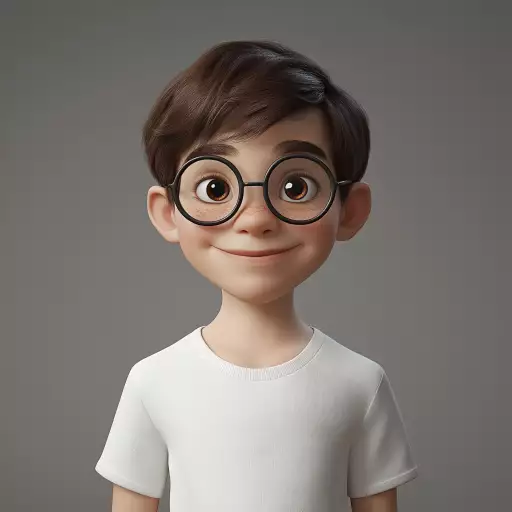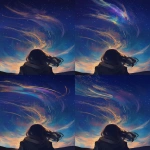Explore the Best AI Image Gallery

Quantum Creativity: Unlocking Artistic Potential Through Quantum Computing
The intersection of quantum computing and the creative industry is a realm brimming with both promise and intrigue. While still in its nascent stages, quantum technology has the potential to revolutionize artistic expression, design, and innovation in ways we are only beginning to fathom.
Breaking Barriers: Quantum Computings Impact on Creative Fields
Quantum computers, unlike their classical counterparts, harness the principles of quantum mechanics to perform calculations at an unprecedented speed and scale. This unique ability opens doors to novel applications within the creative sphere:
- Generative Art: Quantum algorithms can be employed to create intricate and complex artwork based on user-defined parameters or even emergent patterns. Imagine artworks that evolve and adapt in real-time, driven by quantum processes.
- Music Composition: Quantum computing could assist in composing entirely new musical pieces, exploring harmonies and structures beyond the reach of traditional methods. It could also personalize music experiences, generating soundscapes tailored to individual preferences.
- Design Optimization: Architects, product designers, and fashion creators can leverage quantum simulations to explore design iterations at a much faster rate, optimizing for aesthetics, functionality, and even sustainability.
- Immersive Experiences: Quantum-powered virtual and augmented reality could create hyperrealistic and interactive environments, blurring the lines between the physical and digital realms. Imagine attending a concert in a virtual space where the music reacts to your movements in real-time.
Navigating Ethical Considerations
As with any powerful technology, quantum computing raises ethical considerations that must be carefully addressed:
- Bias and Representation: Quantum algorithms trained on biased data could perpetuate existing inequalities in the creative landscape. Ensuring diversity and fairness in training datasets is crucial.
- Ownership and Authorship: When AI systems generate art or music, questions arise about ownership and copyright. Establishing clear guidelines for intellectual property rights in a quantum-driven world is essential.
- Accessibility and Equity: The high cost of quantum computing could create disparities in access to these powerful tools. Efforts should be made to promote inclusivity and ensure that the benefits of quantum creativity are shared broadly.
The Future of Quantum Creativity
The future of creativity in a quantum-powered world is both exciting and uncertain. As research and development progress, we can anticipate:
- Increased Democratization: Quantum tools could become more accessible, empowering individuals and smaller studios to compete with large corporations.
- Cross-Disciplinary Collaboration: The convergence of quantum computing with other fields like neuroscience and psychology could lead to groundbreaking artistic expressions.
- New Artistic Languages: Quantum phenomena may inspire entirely new forms of art, pushing the boundaries of human imagination.
Quantum creativity is poised to redefine the artistic landscape, fostering innovation, challenging conventions, and unlocking a universe of possibilities. By embracing its potential while navigating its ethical complexities, we can embark on a transformative journey into a future where art and technology converge in profound ways.








](https://images.ai-img.art/thumbnails/150/27897356e1d92d128c83ad5779de1ae66751f0943d921bda9c2a162cc287b664.webp)
](https://images.ai-img.art/thumbnails/150/1610203f7d5eb18736cc1b43ca4fb910a610607efd6639d790e044af28ffae4d.webp)


](https://images.ai-img.art/thumbnails/150/3ad927a2a8f234479e35650778fd4cec400e85de5299fd8ebd646e7220ae242f.webp)

](https://images.ai-img.art/thumbnails/150/840bfa50efc7ee165056fd61e66b3be02ffcd1b04ae89966358761d439af7602.webp)








](https://images.ai-img.art/thumbnails/150/7031d7eb0c7618d6524b18c5b472fac7c5e964fd4286dcfbcd356aef54e4c53a.webp)













](https://images.ai-img.art/thumbnails/150/8caf7e37ecfe36725a0c33aa50e5793dec55873c2718a9df1bd777db77388e8a.webp)



](https://images.ai-img.art/thumbnails/150/ddeb40d1b60f9200e47b41141d7f1b5d626d81dbffc2daf46e83def5a82d9b4c.webp)
](https://images.ai-img.art/thumbnails/150/b6fcbcc7556afc20e3fc7a1b5953d65a98e64337d72c93d4d8988cc3f3d552a2.webp)






